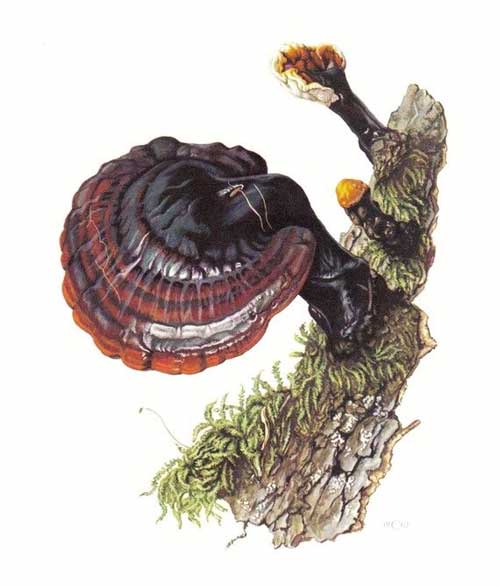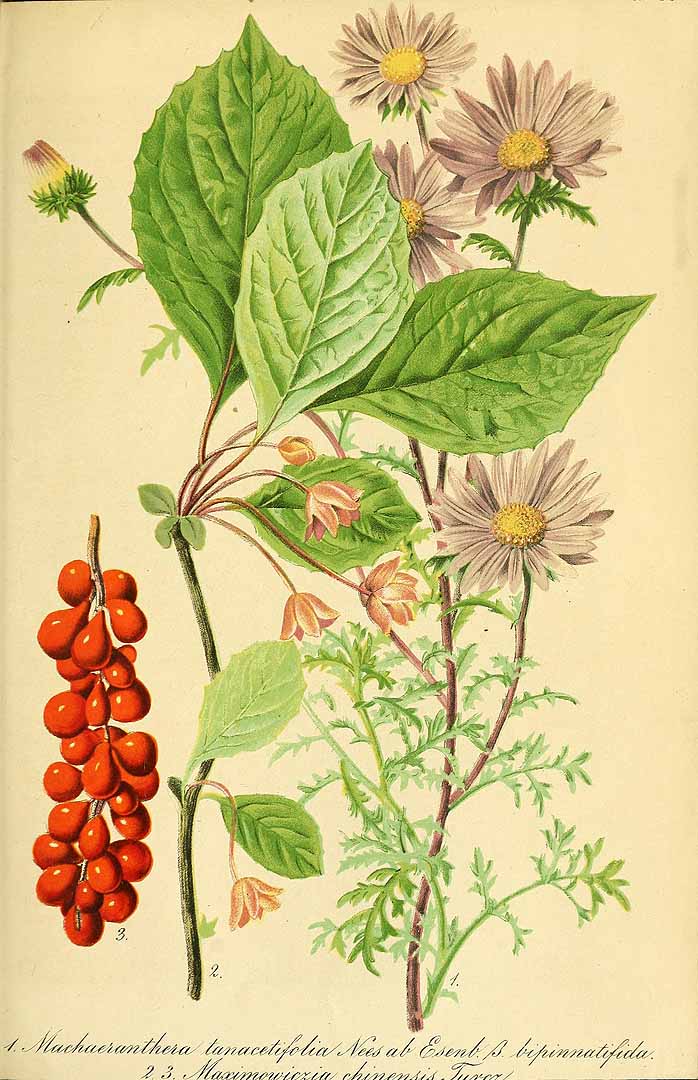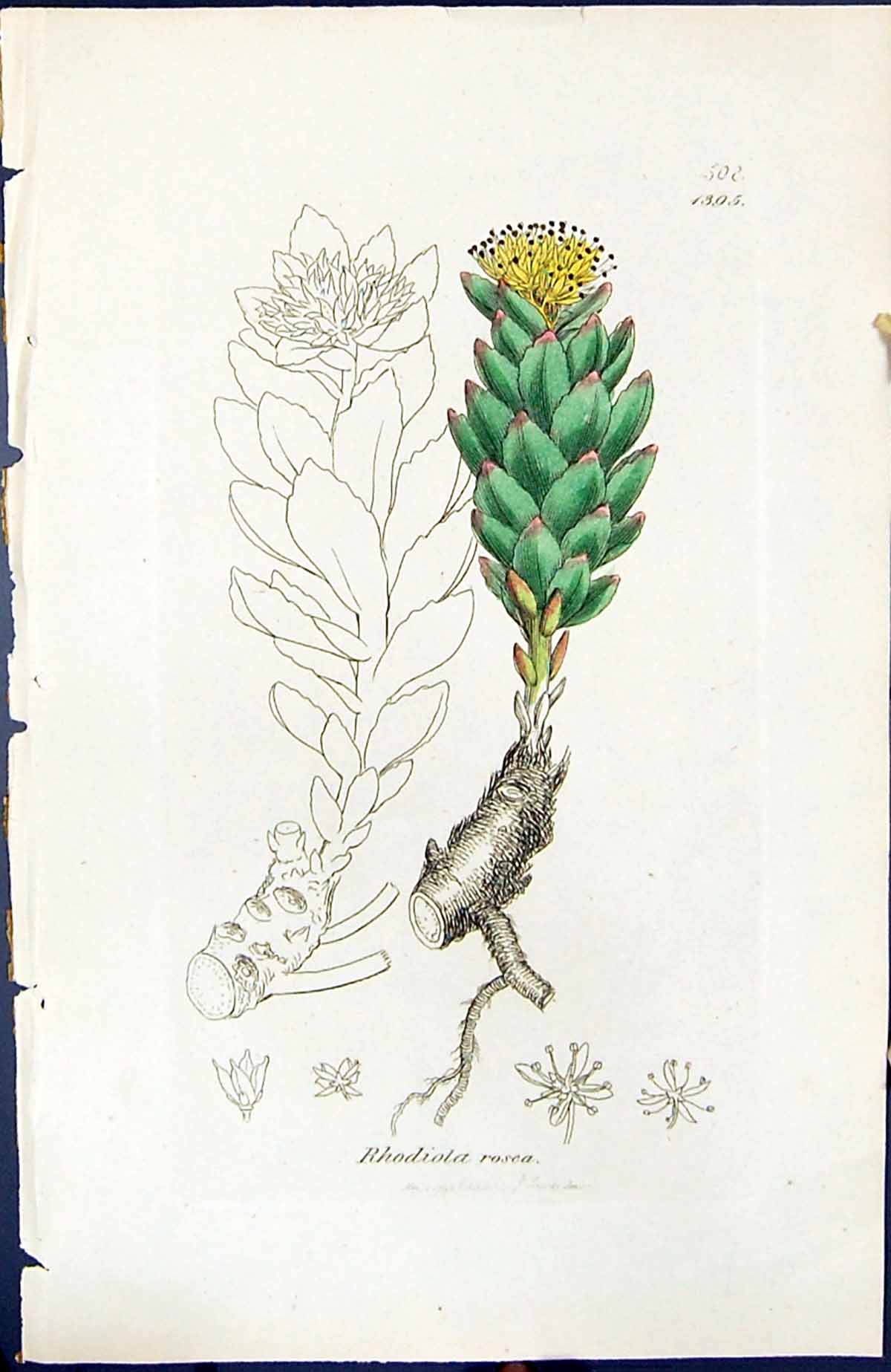An introduction to the power of Adaptogenic Plants...
It is not the strongest of the species that survives, nor the most intelligent that survives. It is the one that is most adaptable to change.
- Charles Darwin
My grandmother always told us, there’s only one certainty in life...change. Everything changes...that is the one thing we can always count on...which is just one reason I love Adaptogenic plants. The easiest way to remember what this magical group of plants do, is to look at the name...Adaptogens help us to “Adapt” to stress. A more thorough analysis shows that they do this by helping to normalize the body’s response to stressors...meaning that they can act as a calibrator of sorts, bringing your HPA axis and sympathoadrenal system (your body’s stress response mechanisms), back into balance. So whether you are overwhelmed or underwhelmed, adaptogens’ intelligent energy will bring harmony back to your stressed system.
In a world where we are bombarded with the gnawing drone of constant stressors...everything from “first world problems”, such as losing those last 5 lbs, to being confronted with the world's very real humanitarian and environmental problems...our bodies, minds and spirits can become worn down to the point that our stress response stays in “flight or fight” mode. This in turn suppresses our immune systems, slows our digestive systems, halts our reproductive systems, raises our blood sugar, quickens our breathing, and constricts our blood vessels which raises our blood pressure. We need this stress response for life and death situations in order to keep us alive and alert when taking action is necessary...however, staying in this heightened stress state can lead to basically “all the diseases” (not an actual diagnosis).
Thrive
The American Psychological Association defines resilience as "the process of adapting well in the face of adversity, trauma, tragedy, threats or significant sources of stress" (“The road to resilience,” n.d.). In order for us to thrive, we need to adapt to ever changing and ever challenging circumstances, some expected and most unexpected. Resilience is the characteristic that allows us to bounce back, recover and thrive after experiencing major stressors or adversity; adaptogens can provide that extra nourishment and healing that may be needed, particularly for those who have experienced chronic stress, disease, or faced other difficulties that have left them feeling empty of their innate "life force".
Cue in the adaptogens, please!
Here are some adaptogens worth getting to know along with just a few of the many benefits they bring:
Ashwagandha
Latin name: Withania somnifera
Plants like Ashwagandha (my “boo”...as my sister would say) have been shown in studies to reduce the effects of stress, by:
- Improving blood sugar balance
- Balance corticosteroid levels
- Reduce male and female sexual dysfunction
- Reduce brain fog, cognitive decline, depression, anxiety
- Boost the immune system
Typical preparations include capsules of the powdered root or liquid root extract, ghee mixutre, tea, or tincture; best absorbed when taken with good quality fats (ghee, coconut oil, avocado, organic nut butter, etc).
Favorite sources: Banyan Botanicals Ashwagandha Organic Root Powder & Gaia Ashwagandha Root Extract
You can read more about Ashwagandha, in my blog post “Strong like Bull...I mean horse”.
*Not to be used during pregnancy or for those with a nightshade allergy
(Braun & Cohen, 2015)
Holy Basil
Latin name: Ocimum sanctum
- Also known as "Tulsi"
- Contains rejuvenating and revitalising properties that contribute to longevity
- Regulates both the HPA axis and sympatho-adrenal systems
- Improves symptoms associated with stress such as forgetfulness, frequent exhaustion, and sexual dysfunction and sleep disturbances
- Anti-inflammatory effects comparable to non-steroidal anti-inflammatory drugs
Typical preparations include tea made from the fresh, dried, or powdered leaf, in a mixture with ghee, or tincture.
Favorite sources: Organic India Tulsi Tea
*Caution for those with hypoglycemia as Holy Basil can lower blood sugar; caution with certain medications as it can speed up drug metabloism
(Braun & Cohen, 2015; Kuhn & Winston, 2008; Saxena et al., 2012; Wohlmuth, 2000)
Reishi Mushroom
Latin name: Ganoderma lucidum
- Supports the adrenal glands as well as the immune system by enhancing “monocyte, macrophage, and T lymphocyte activity” and by “down-regulating excessive immune system response in patients with immune dysregulation (autoimmune diseases) and allergies” (Winston & Maimes, 2007)
- Has been used in Traditional Chinese Medicine for centuries for those with insomnia, anxiety, poor memory, weakness, heart disease, heart palpitations, cancer, allergies, and hypertension
- Reduces fatigue and an improves sense of well-being in those with frazzled nerves and symptoms of chronic stress such as anxiety, headaches, and irritability
Typical preparations include capsules, tea and tincture.
Favorite sources: Four Sigmatic Reishi Mushroom Elixir
*Contraindicated for those with mushroom allergies
(Tang et al., 2005; Winston & Maimes, 2007)
Eleuthero
Latin name: Eleutherococcus senticosus
- Also known as Siberian Ginseng
- Strengthens the immune system with regular use
- Can increase endurance and stamina due to enhancing mitochondrial activity
- Can speed recovery time up and prevent immune-depletion from excessive athletic training
- Has been shown to improve cognitive function and sharpness when experiencing chronic stress or when working long hours
Typical preparations include capsules, tea and tincture.
Favorite sources: Organic Eleuthero Root Tincture by Urban Moonshine
*No known precautions although some may find it too stimulating when taken too close to bed
(Winston & Maimes, 2007)
Schisandra
Latin name: Schisandra chinensis
- Has shown to help enhance recovery time and stamina
- Works on the immune, nervous, and endocrine systems by acting both as a mild stimulant to enhance reflexes and mental activity, as well as “calm and help relieve anxiety and stress-induced asthma or palpitations” (Winston & Maimes, 2007)
- Has been shown to support “the central nervous, sympathetic, endocrine, immune, respiratory, cardiovascular, gastrointestinal systems, on the development of experimental atherosclerosis, on blood sugar and acid–base balance” (Panossian & Wikman, 2008)
Typical preparations include capsules, tea, tincture and syrups.
Favorite sources: Organic Schisandra Berries from Mountain Rose Herbs
* Contraindicated for epilepsy & pregnancy; can increase effects of barbiturates; use with caution with blood thinners
(Panossian & Wikman, 2008; Winston & Maimes, 2007)
Rhodiola
Latin name: Rhodiola rosea
- Has been shown to “increase physical endurance, work productivity, longevity, resistance to high altitude sickness, and to treat fatigue, depression, anemia, impotence, gastrointestinal ailments, infections, and nervous system disorders” (Brown et al., 2002)
- Has been shown to help improve blood circulation
- Some studies have shown that it can increase stress resistance as well as contribute to a longer life span
Typical preparations include capsules, tea, and tincture.
Favorite sources: Rhodioloa Root Extract by Urban Moonshine
* Contraindicated for people with “bipolar, manic, or paranoid” episodes; may not be the best fit for those who suffer from insomnia
(Braun & Cohen, 2015; Brown et al., 2002; Winston & Maimes, 2007)
In order for us to be able to bring all of our gifts to the world and shine our light like we’re supposed to...we need to cultivate the resilience and adaptive qualities that will let us be our best selves...and adaptogens might just be the sidekick that will help you embrace your innate superpowers. Stay tuned for future blogs that will delve into further detail on these powerhouse plants.
DISCLAIMER:
For educational purposes only. This is NOT medical advice. This information is not intended to diagnose, treat, cure, or prevent any disease.
References:
Braun, L., & Cohen, M. (2015). Herbs and Natural Supplements, Volume 2: An Evidence-Based Guide. Elsevier Health Sciences.
Brown, R., Gerbarg, P., & Ramazanov, Z. (2002). Rhodiola rosea: A Phytomedicinal Overview. Retrieved from http://rhodiolarosea.org/HerbGrams-2002_original.pdf (Links to an external site.)
Kuhn, M., & Winston, D. (2008). Herbal Therapy & Supplements; A Scientific & Traditional Approach (2nd ed.). Philadelphia, PA: Lippincott Williams & Wilkins.
Panossian, A., & Wikman, G. (2008). Pharmacology of Schisandra chinensis Bail.: An overview of Russian research and uses in medicine. Journal of Ethnopharmacology, 118(2), 183–212. http://doi.org/10.1016/j.jep.2008.04.020
Saxena, R. C., Singh, R., Kumar, P., Negi, M. P. S., Saxena, V. S., Geetharani, P., Venkateshwarlu, K. (2012). Efficacy of an Extract of Ocimum tenuiflorum (OciBest) in the Management of General Stress: A Double-Blind, Placebo-Controlled Study. Evidence-Based Complementary and Alternative Medicine : eCAM, 2012. http://doi.org/10.1155/2012/894509
Tang, W., Gao, Y., Chen, G., Gao, H., Dai, X., Ye, J., Zhou, S. (2005). A randomized, double-blind and placebo-controlled study of a Ganoderma lucidum polysaccharide extract in neurasthenia. Journal of Medicinal Food, 8(1), 53–58. http://doi.org/10.1089/jmf.2005.8.53
The road to resilience. (n.d.). Retrieved from http://www.apa.org/helpcenter/road-resilience.aspx
Winston, D., & Maimes, S. (2007). Adaptogens: Herbs for Strength, Stamina, and Stress Relief. Inner Traditions / Bear & Co.
Wohlmuth, H. (2000). Sacred basil – an Ayurvedic adaptogen. Botanical Pathways, (11). Retrieved from https://www.researchgate.net/profile/Hans_Wohlmuth/publication/252134912_Sacred_basil_-_an_Ayurvedic_adaptogen/links/00b4952b760490137f000000.pdf







